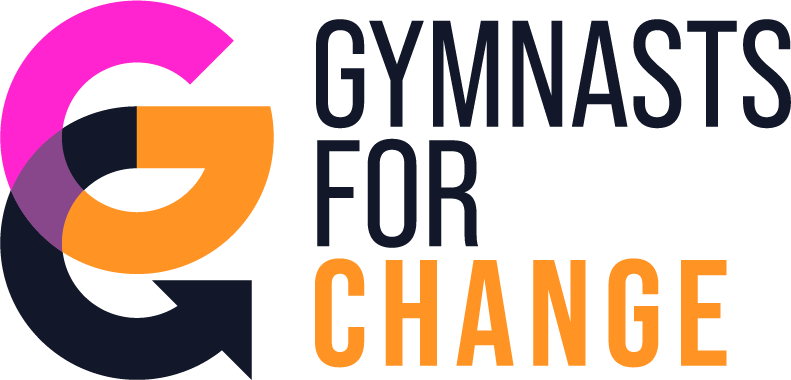Gymnastics New Zealand Chief Executive admits ‘abuse was normalised’ in the sport
On 10 February 2021, Gymnastics New Zealand released a report detailing the findings of an independent review commissioned in August 2020 into past incidents of alleged abuse towards gymnasts within the sport.
The review, conducted by David Howman (formerly Chief Operating Officer at the World Anti-Doping Agency), Lesley Nicol and Rachel Vickery, identified concerns in ten key areas including athlete well-being, coach education and complaints procedures. The report made a total of 50 recommendations for extensive improvements needed in the sport.
The release of the report was accompanied by an interview with Tony Compier, Chief Executive of Gymnastics New Zealand. In the interview on Radio New Zealand (Feb 10 2021), Mr Compier cites the review as being part of a current ‘global review of gymnastics practices’.
More specifically, Compier stated that the report acknowledges the use of “emotional abuse, body shaming, physically abusive training practices, harassment & bullying”, describing these as practices that “one might reasonably define as abuse”.
Compier went on to offer current and former NZ gymnasts an apology for the ‘abuse and negative experiences’ they suffered as a result of participating in gymnastics – while also claiming Gymnastics New Zealand “had no knowledge that the review would find the breadth & depth of what they found”.
Mr Compier said:
“We're sorry that those who have gone before and some of those currently engaged in our community [have] suffered abuse and have suffered negative experiences as a result of participating in gymnastics.”
“We apologise for that unreservedly, and we will work hard with our community and our partners to address and redress that.”
“We commend the courage and bravery of those who have come forward to share their experiences.”
“Ultimately, one incidence of abuse is one too many.”
“We need to rid those negative experiences from the sport so no participants ... suffer the experiences the survivors had.”
However, despite acknowledging that abuse had been “normalised” within the sport over a 30-40 year period, it was also made clear by Compier that the review itself did not set out to investigate any claims of misconduct. “Allegations of misconduct were not to be investigated, nor was there to be any finding of fact made in relation to any aspect of behaviour in the sport.” (report page 6).
Individual complaints are being investigated via an Interim Complaints Mechanism (ICM), but Mr Compier said he could give no details about what stage that process was at and that the ICM would report to GNZ when it was over. Gymnasts we spoke to in New Zealand said that they felt engagement with the ICM was low because gymnasts do not trust the integrity of the process.
Gymnasts for Change welcome the GNZ apology and general acknowledgment of wrongdoing. However, we are also concerned that unless the governing body proceeds to investigate in detail, specific incidents and specific allegations, and then make public full details about the systems, practices and individuals involved in facilitating the abuse, then the tools for true accountability will remain outside the grasp of gymnasts, and the full implications of abusive coaching practices will remain safely hidden from scrutiny.
From the outset, it is our belief that the scope of the review conducted by David Howman and commissioned by GNZ was limited, preventing meaningful engagement with athletes and survivors of abuse. Furthermore, the findings of the review, in our opinion, take the form of generalised statements and fail to provide significant detail or context regarding the origins, organisational systems or policies that allowed these “normalised” practices to persist for 30-40 years without being addressed.
It is therefore our belief that, as yet, Mr Compier & the Howman review have failed to answer the key question at hand - a question that was put to Compier live on air in the interview with Katherine Ryan: “How did things get to the stage that GNZ needed to be funding counselling for gymnasts harmed through participation in the sport? How did we get here? Most of your athletes, 80%, are children & teens – physically & psychologically of an age where care and pastoral care is important”.
As a collective of gymnasts, former gymnasts, parents and supporters, we understand that the answers to this question are complex. We believe that what is needed from those involved in running gymnastics worldwide are in-depth review processes that look in detail at specific incidents and specific allegations, in order to report the full picture and scale of the abuse being described. What we as gymnasts want is genuine apologies from governing bodies, genuine redress and genuine reform, which will ensure a genuine clean break with past abusive practices.
When asked to comment on the findings of the review leading whistle blower and former New Zealand Gymnast Olivia Jöbsis said:
“The report is vague and the tone consistently works to minimise and mitigate the issues to make them more palatable and less urgent. In my experience it’s not uncommon for ex-athletes to be affected in ways that leave them vulnerable to pathways after retirement that include self-harm, drug use, working in adult industries and frequently finding themselves in domestically violent relationships because that is what we have been groomed towards since we were children. Elite Gymnastics training is a process that sets women up for those sorts of experiences and this report does not address this fact”.
We stand in solidarity with the gymnasts of New Zealand and agree that only detailed public scrutiny can sweep away past abusive practices and prevent their return in any guise or at any point in the future. Only through the kind of public scrutiny that comes from truly independent and transparent procedures can global governing bodies immunise themselves from claims of orchestrated cover-up.


